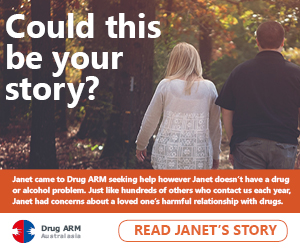WHEN Fay Jackson, of Dolls Point, was diagnosed with bipolar disorder, people called her all sorts of names, including stupid.
She decided the best way to break down the stigma associated with mental illness was to speak out.
The deputy commissioner of the NSW Mental Health Commission and the first consumer speaker for beyondblue, has been appointed to the National Mental Health Leaders Project.
The project is an initiative of the National Mental Health Commission to provide ongoing opportunities for the development of existing consumer and carer mental health leaders. It also provides mentoring and leadership development and the chance to contribute to mental health policy advice on a national level.
Liverpool Hospital psychiatrist Rod McKay, of Sutherland Shire, is also involved.
“I’ve had experience of depression, but I think that too often we consider people with ‘lived’ experience of mental illness and mental health professionals as two separate groups of people, however, they also overlap,” Dr McKay said.
“We all have many different life experiences and we can’t help but in some way apply those to how we work.
“I think stigma [about mental health] is particularly improving at the youth end, but for many people, their experiences when they were younger, or the experiences they heard about of relatives, of friends . . . really still colours their views of what mental illness is and what the treatment of mental illness is now.
“Mental illness is life-changing but does not have to be life-limiting. With good treatment and support and sensible decisions, one can add the experience to other life experiences and continue a very satisfying and productive life.”
Ms Jackson said: “In my view, the majority of issues related to mental health can be traced to discrimination, stigma and lack of equitable opportunity to work, education, health and housing.
“It diminishes your sense of worth and then you start to feel that you don’t have anything to contribute.
“There’s not enough services in the community for people to access early and easily and that’s certainly where we need more support.
“There are four generations alive in my family, who if one person is unwell, affects the other people, as it does with any physical illness.”
This article first appeared on ‘St George and Sutherland Shire Leader’ on 24 May 2014.






















